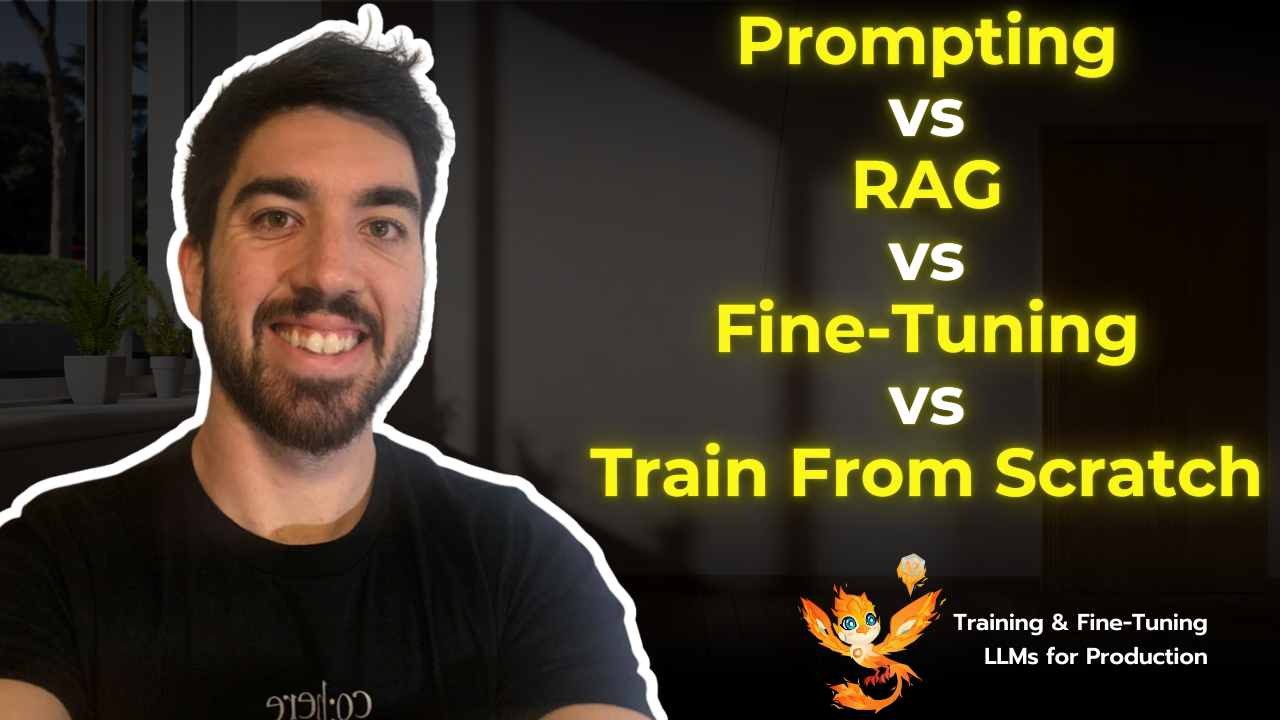Train, fine-tune, prompt, RAG... What should you do with your LLM?
Tips on what to do with your language model or API

Do you ever question yourself if you should be training from scratch, fine-tuning, doing prompt engineering, or retrieving augmented generation (RAG)?
There are so many possibilities, but they each have a specific purpose and associated cost.
Here's everything you need to know to enhance LLM performance, balancing quality, costs, and ease of use. ✨🚀
Retrieval Augmented Generation (RAG) is now extremely popular. But what's the difference between fine-tuning, simple "prompting", or even training entirely from scratch? When should you use what?
Either launch a fast GPT-4 and explore prompt engineering and, once needed, try out fine-tuning for style-specific LLM adaptation without full retraining.
If you see lots of model hallucinations and/or misaligned output, try out RAG to enhance model accuracy and knowledge.
When it comes to fine-tuning, explore low-cost fine-tuning with LoRa and QLoRa. In the video and our free course (below), we cover large-scale model refinement and discuss training a model from scratch, including required datasets and resources.
This was a short overview of what you absolutely need to know... Learn more in this video that guides developers and AI enthusiasts on improving LLMs, offering methods for both minor and major advancements. Watch to refine LLM optimization skills:
P.S. If you found this post useful, we teach much more in our free course in collaboration with Activeloop, Towards AI, and the Intel Disruptor Initiative... Check it out!

More about the course...
Tl;dr: The course is about showing everything about LLMs (train, fine-tune, use RAG…), and it is completely free!
Is the course for you?
If you want to learn how to train and fine-tune LLMs from scratch, and have intermediate Python knowledge, you should be all set to take and complete the course.
This course is designed with a wide audience in mind, including beginners in AI, current machine learning engineers, students, and professionals considering a career transition to AI.
We aim to provide you with the necessary tools to apply and tailor Large Language Models across a wide range of industries to make AI more accessible and practical.

